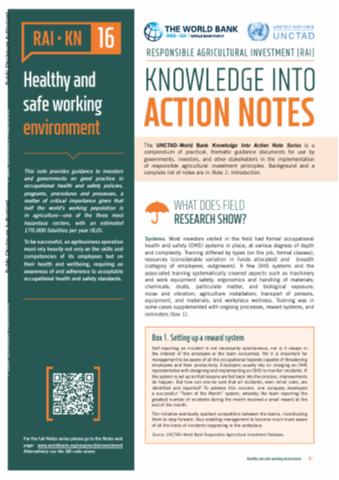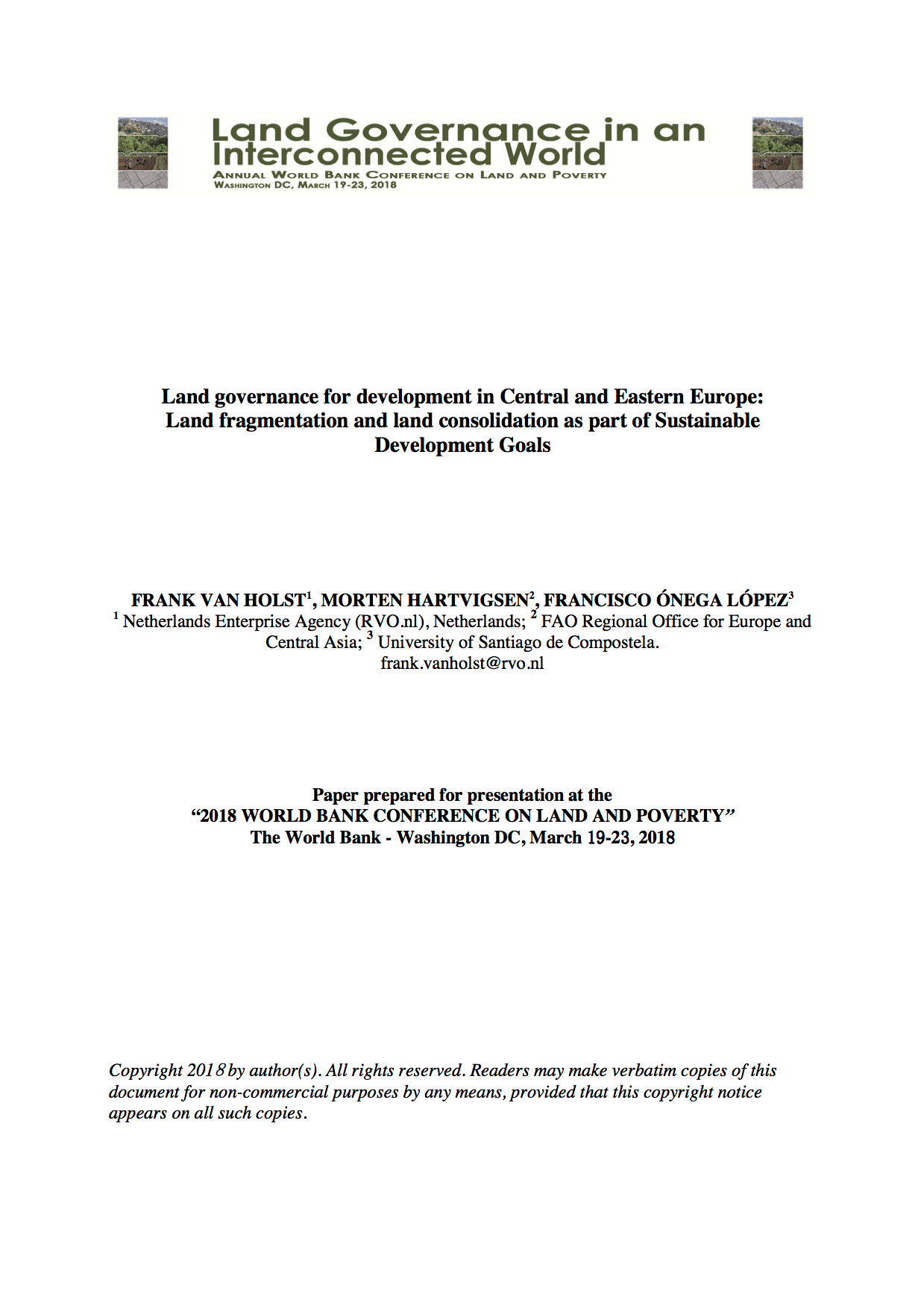The World Bank is a vital source of financial and technical assistance to developing countries around the world. We are not a bank in the ordinary sense but a unique partnership to reduce poverty and support development. The World Bank Group has two ambitious goals: End extreme poverty within a generation and boost shared prosperity.
- To end extreme poverty, the Bank's goal is to decrease the percentage of people living on less than $1.25 a day to no more than 3% by 2030.
- To promote shared prosperity, the goal is to promote income growth of the bottom 40% of the population in each country.
The World Bank Group comprises five institutions managed by their member countries.
The World Bank Group and Land: Working to protect the rights of existing land users and to help secure benefits for smallholder farmers
The World Bank (IBRD and IDA) interacts primarily with governments to increase agricultural productivity, strengthen land tenure policies and improve land governance. More than 90% of the World Bank’s agriculture portfolio focuses on the productivity and access to markets by small holder farmers. Ten percent of our projects focus on the governance of land tenure.
Similarly, investments by the International Finance Corporation (IFC), the World Bank Group’s private sector arm, including those in larger scale enterprises, overwhelmingly support smallholder farmers through improved access to finance, inputs and markets, and as direct suppliers. IFC invests in environmentally and socially sustainable private enterprises in all parts of the value chain (inputs such as irrigation and fertilizers, primary production, processing, transport and storage, traders, and risk management facilities including weather/crop insurance, warehouse financing, etc
For more information, visit the World Bank Group and land and food security (https://www.worldbank.org/en/topic/agriculture/brief/land-and-food-security1
Resources
Displaying 61 - 65 of 490716 - Healthy and safe working environment - Responsible Agricultural Investment (RAI): Knowledge into Action Notes series
This note is part of an Action Notes series and provides guidance for governments and companies on good practice in occupational health and safety policies, programs, procedures and processes, a matter of critical importance given that half the world’s working population is in agriculture
16 - Healthy and safe working environment - Responsible Agricultural Investment (RAI): Knowledge into Action Notes series
This note is part of an Action Notes series and provides guidance for governments and companies on good practice in occupational health and safety policies, programs, procedures and processes, a matter of critical importance given that half the world’s working population is in agriculture
Land governance for development in Central and Eastern Europe: Land fragmentation and land consolidation as part of Sustainable Development Goals
Most transition countries in Central and Eastern Europe (CEE) face enormous challenges in developing a viable land structure, requiring a set of measures which is unprecedented in its scale and intensity to speed up this process. Analysis of policy initiatives in CEE countries illustrates that options for solving fragmentation and small scale of farms have concentrated on particular instruments like land consolidation and land banking.
Doing Business 2018 Reforming to Create Jobs
This year marks the 15th Doing Business report. Since the inception of the project in 2003, the global business regulatory environment has changed dramatically. Governments around the world have embraced and nurtured advances in information technology to reduce bureaucratic hurdles and increase transparency. Today, in 65 of the 190 economies covered by Doing Business, entrepreneurs can complete at least one business incorporation procedure online, compared with only nine of the 145 economies measured in Doing Business 2004.
Further standardisation in Land Administration
The paper describes the ongoing developments and standardisation in land administration. Standards are relevant in relation to build as well as maintain and develop a land administration.









